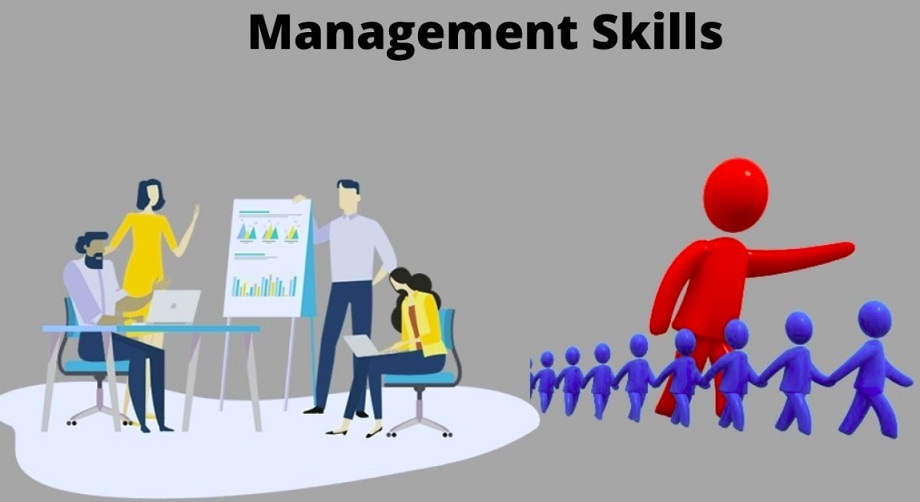Seven Tips to Improve Your Managerial Skills In 2023
The global pandemic has changed the way we work dramatically. As managerial roles become more complex, there is an increasing need for managers with the right skills, knowledge, and mindset to thrive in this changing world. Fortunately, there are steps you can take to prepare yourself and make sure you're ready for whatever may come.
If you want to be a successful manager in today's rapidly changing environment, then it is important to continuously develop your managerial skills. To help get you started, here are seven practical tips on how to improve your managerial skills by 2023.
 Picture 1 of Seven Tips to Improve Your Managerial Skills In 2023
Picture 1 of Seven Tips to Improve Your Managerial Skills In 2023
1. Refine Your Decision Making
When it comes to decision-making, managers need to assess their options carefully and choose the best one based on their current circumstances. Try developing problem-solving methods that do not rely on linear thinking and practice evaluating complex situations from multiple angles.
Refining decision-making involves taking a methodical approach, analyzing problems objectively, and using available data to come up with solutions that benefit both customers and stakeholders. This helps managers ensure that their decisions are sound and will lead the company in the right direction.
Furthermore, when you develop your decision-making skills, you will be better equipped to solve problems during a major crisis.
2. Accept Responsibility
For managers, accepting responsibility is essential in order to ensure things get done correctly and efficiently. It's important that they don't shy away from difficult decisions or be afraid of offending people as part of their job role.
Managers must accept responsibility for the decisions they make, as well as the consequences of those decisions. Taking responsibility helps to create trust between managers and their teams and gives employees a sense of security that their leader is capable of handling tough situations. Additionally, it sets an example of accountability that can promote communication and collaboration in a team, helping to create a culture of success.
3. Be an Energetic Communicator
Good communication is a must for any successful manager. So make sure you have excellent verbal and written communication skills, which will influence people positively and help get tasks accomplished smoothly.
The Spike team collaboration platform is an excellent place to start learning how to improve your communication skills. This is especially true if you're working with a hybrid team. You will learn how to effectively collaborate and communicate whether you have internal or external staff.
4. Delegate Appropriately
Knowing when and how to delegate work is another key element of a successful management style, but it requires both skill and experience. When deciding who should take on tasks delegated from you, be sure to think about what kind of experience is needed as well as individual preferences before making your final decision!
It's better to delegate time-sensitive tasks to staff that are more experienced and work faster. Provide projects that are not as important to team members that are still learning the ropes.
5. Lead by Example
Managers must lead by example in order to gain the respect and trust of their employees. Employees need to trust that their managers are knowledgeable and have their best interests in mind. If a manager is seen taking advantage of their position or making decisions without considering other options, they will lose the respect of those around them.
The best way for a manager to ensure they are respected is to be an example of good leadership and decision-making by understanding the issues at hand, creating thoughtful solutions, and committing themselves to leading with integrity. Therefore, it's paramount that managers lead by example to foster strong relationships with those around them.
6. Think Strategically
Managers must think strategically because it helps them make decisions that are consistent with the goals for long-term success. By thinking ahead about potential implications and benefits, managers can identify problems before they become overwhelming.
Strategic thinking also encourages innovation and allows managers to craft strategies that align with organizational goals. Applying strategic thinking to management makes it easier to prioritize tasks in a way that will lead to overall better results. It also fosters an environment where collaboration and creative problem-solving are embraced rather than discouraged.
7. Develop Resilience
Managers must develop resilience to overcome the challenges they face on a daily basis. Whether it is responding to customer complaints, handling employee disputes, or dealing with difficult markets, managers need strength and flexibility to consistently make decisions that will benefit their team and organization.
Resilience is key for managers to stay focused and motivated. This helps them manage risks effectively, remain agile in unpredictable circumstances, and find new ways to succeed. Managers who have developed resilience are better equipped to handle stressors that arise in the workplace and keep their team motivated through times of difficulty.
Final Thoughts
With these tips in mind, you should be well-equipped with the necessary knowledge required when attempting new managerial duties in 2023! Good luck!
You should read it
- 7 soft skills needed by an IT worker
- 6 months for 8 skills and life you will change!
- If you have these 8 skills, you will never be afraid of robbing your job
- The harsh truth about learning skills: To become an expert, you must accept pain
- Top 11 skills need to be at age 24
- 10 skills are not the most important but if they are, you will benefit from life
- 7 indispensable gesture languages for a professional manager
- Here are 5 skills that the university will teach you
- Harvard psychologist: 2 criteria people use to evaluate you in the first meeting
- Having these technology skills in your CV, you will be sure of the 'ticket' in the interview round
- Should I tell my boss: 'I'm not happy with the job' or are I quiet and leave?
- 19 soft skills that those who want to be good leaders must also have






 5 easy ways to improve Photoshop skills
5 easy ways to improve Photoshop skills 7 ways to improve soft skills and avoid awkward situations in life
7 ways to improve soft skills and avoid awkward situations in life 5 'very toxic' tips help improve photography skills in just 1 minute
5 'very toxic' tips help improve photography skills in just 1 minute How To Improve Your Casino Gaming Skills
How To Improve Your Casino Gaming Skills Try to be different: 5 ways to express yourself well when coming to an interview
Try to be different: 5 ways to express yourself well when coming to an interview 17 important survival skills you need to know to save yourself
17 important survival skills you need to know to save yourself